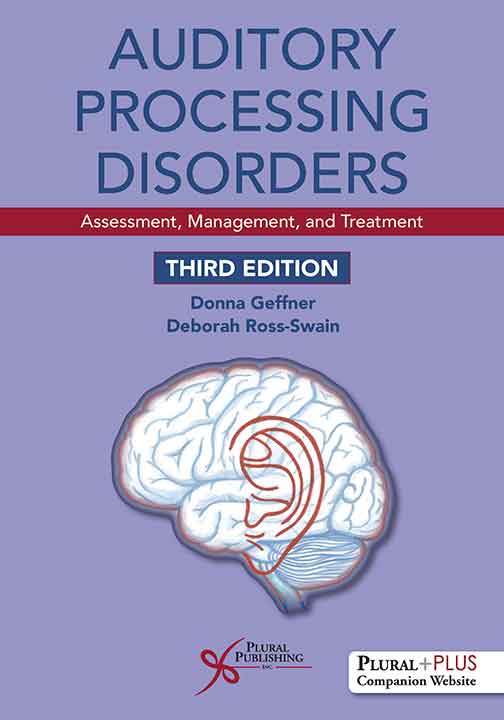
Auditory Processing Disorders: Assessment, Management, and Treatment.
Third Edition
Donna Geffner, Deborah Ross-Swain
Details: 606 pages, B&W, Softcover, 7" x 10"
ISBN13: 978-1-94488-341-6
© 2019 | Available
A new edition is forthcoming.
Auditory Processing Disorders: Assessment, Management, and Treatment, Third Edition details the definition, behaviors, and comorbidities of auditory processing disorders while educating the reader on the most current practices for audiological and speech-language assessment of APD, including its impact on literacy and language processing. Practical rehabilitation, management strategies, and direct evidence-based treatment programs, including the use of technology, are covered in detail. Auditory Processing Disorders is a highly practical book designed specifically for practicing clinicians and instructors, both audiologists and speech-language pathologists. It contains a comprehensive review of APD and is an excellent resource for upper-level audiology students and for educated parents, teachers, and other professionals wishing to learn more about APD for themselves, their child, and their practice.
The third edition includes a global perspective of auditory processing including the latest in evidence-based treatment programs. Content has been edited to be more concise and user-friendly for increased readability and comprehension. Contributions are from the field's most recognized experts such as Gail Chermak, Frank Musiek, Jack Katz, Harvey Dillon, Gail Richards, and Teri Bellis.
New to the Third Edition
- New chapters address neurological brain damage and its impact on auditory processing, psychiatric disorders associated with auditory processing, the impact of otitis media on auditory processing skills, and new methods for diagnosing.
- A new chapter on psychological testing and what psychologists contribute to the battery of testing, diagnosis, and knowledge base of APD, endorsing intraprofessional collaboration.
- A new chapter on an evidence-based program known as CAPDOTS from Carol Lau in Vancouver with data to support its use in deficit specific remediation.
- An updated chapter from Nina Kraus and her laboratory colleagues at Brain Volts, Northwestern University with a new perspective on categorizing and assessing APD.
- Updated chapters reflect the current research on AN/AD and the newest relevant tests for the SLP to administer when screening for APD and treating the phonological aspects of the disorder.
- ASHA expert Janet McCarty presents information and advice on private third-party payors and government agencies for coding and reimbursement.
- Updated images of new FM systems and apps for treatment.
- New and updated resources such as web links, references, technology, and apps.
- Access to a PluralPlus companion website with study questions and an image bank.
Reviews
"Named to Doody's Core Titles in the Health Sciences - Speech, Language & Hearing 2020 list."
—Doody's (May 2020)
Foreword by James Jerger, PhD
Preface
Contributors
Section I. Identification and Assessment
Chapter 1. Current Issues in the Diagnosis and Treatment of CAPD in Children
Renata Filippini, Jeffrey Weihing, Gail D. Chermak, and Frank E. Musiek
Chapter 2. Central Auditory Processing Disorders: Definition, Description, Behaviors, and Comorbidities
Donna Geffner
Chapter 3. Audiologic Assessment of CAPD
Marni Johnson Martin, Cassandra R. Billiet, and Teri James Bellis
Chapter 4. Deficit-Specific Diagnosis and Remediation of Auditory Processing Disorders
Sharon Cameron and Harvey Dillon
Chapter 5. Thinking Outside the Sound Booth: Assessing and Managing Auditory Processing Disorder in an Auditory-Cognitive Neuroscience Framework
Nina Kraus and Spencer B. Smith
Chapter 6. Auditory Processing in Individuals with Auditory Neuropathy
Gary Rance
Chapter 7. The Speech-Language Pathologist's Role in the Assessment of Auditory Processing Skills
Deborah Ross-Swain
Chapter 8. Language Processing versus Auditory Processing
Gail J. Richard
Chapter 9. APDs and Literacy
Martha S. Burns
Chapter 10. Neuropsychological Evaluations: Differentiating Between Auditory Processing and Related Complexities
Daniel B. Peters and Michelle L. Freeman
Chapter 11. Neurological Brain Damage and Its Impact on Auditory Processing
Doris-Eva Bamiou and Cristina F. B. Murphy
Chapter 12. Auditory Processing in Mental Health
Vasiliki (Vivian) Maria Iliadou
Chapter 13. Otitis Media and Central Auditory Processing Disorder (CAPD)
Jack Katz, Thomas R. Zalewski, and Michael J. Brenner
Section II. Management
Chapter 14. The ABCs of CAP: Practical Strategies for Enhancing Central Auditory Processing and Related Skills
Jeanane M. Ferre
Chapter 15. Management Strategies with FM Systems and Assistive Listening Devices
Donna Geffner
Section III. Evidence-Based Treatment and Intervention Programs
Chapter 16. Phonemic Awareness, Reading Abilities, and Auditory Processing Disorders
Jay R. Lucker
Chapter 17. Applicable Applications: Treatment and Technology with Practical, Efficient, and Affordable Solutions
Bunnie Schuler
Chapter 18. Application of Neuroscience to Remediation of Auditory Processing, Attention, Phonological, Attentional, Language, and Reading Disorders: The Fast ForWord® Programs
Martha S. Burns
Chapter 19. CAPD Online Therapy System (CAPDOTS)
Carol A. Lau
Chapter 20. Dichotic Interaural Intensity Difference (DIID) Training
Jeffrey Weihing and Frank E. Musiek
Chapter 21. Central Auditory Processing Disorders and the Disabled Child's Right to Benefits of Public Education
Lina Foltz
Chapter 22. Reimbursement for Central Auditory Processing Disorder
Janet P. McCarty
Chapter 23. Resources and Helpful Websites
Lindsay Lerro
Appendix A. Auditory Processing Disorder: Tips for Parents
Donna Geffner and Deborah Ross-Swain
Appendix B. Auditory Processing Disorder: Tips for Teachers
Donna Geffner and Deborah Ross-Swain
Index
Purchasers of this book receive complimentary access to supplementary materials hosted on a PluralPlus companion website.
To access the materials, log in to the website using the URL located inside the front cover of your copy of Auditory Processing Disorders.
STUDENTS:
To access the student materials, you must register on the companion website and log in using the access code located inside the front cover of your textbook.
INSTRUCTORS:
To access the instructor materials, you must contact Plural Publishing, Inc. to be verified as an instructor and receive your access code.
Email: instructormaterials@pluralpublishing.com
Tel: 866-758-7251 (toll free) or 858-492-1555
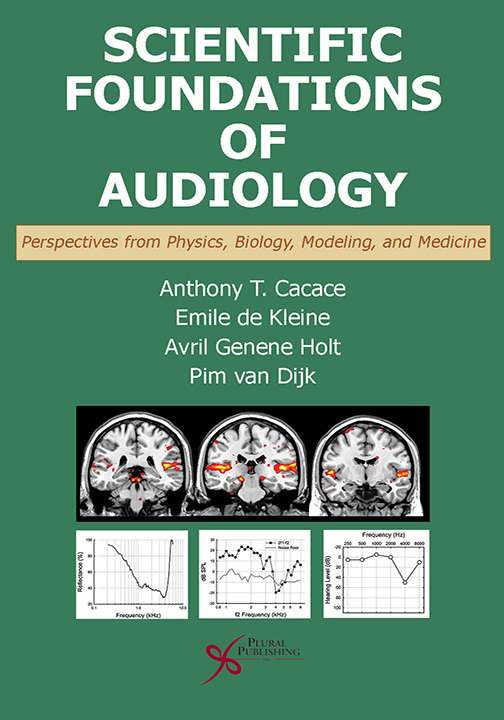
Scientific Foundations of Audiology: Perspectives from Physics, Biology, Modeling, and Medicine
380 pages, B&W, Hardcover, 7" x 10"
Anthony T. Cacace, Emile de Kleine, Avril Genene Holt, Pim van Dijk
Details: 380 pages, B&W, Hardcover, 7" x 10"
ISBN13: 978-1-59756-652-0
© 2016 | Available
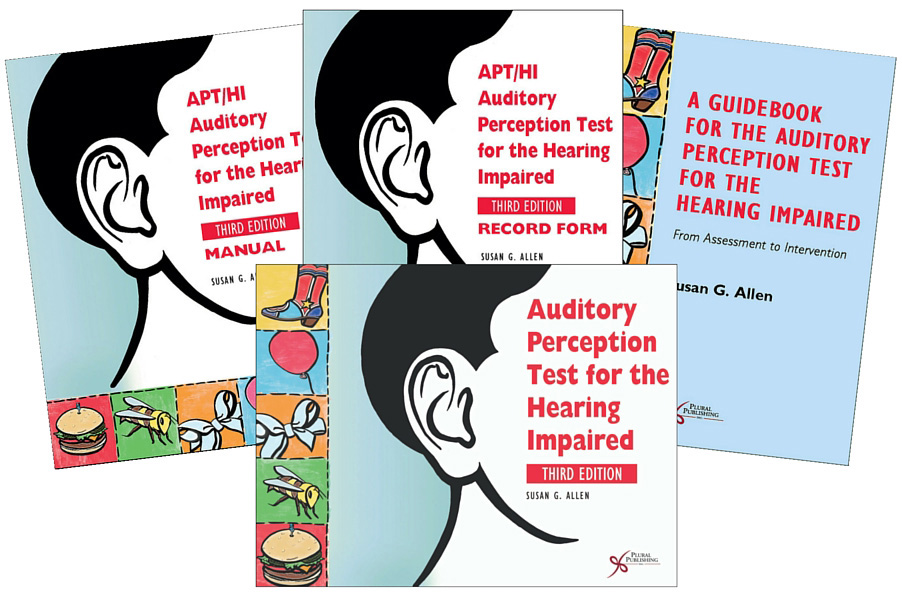
Auditory Perception Test for the Hearing Impaired (APT/HI)
Third Edition
Susan G. Allen
Details: Full Color, Spiral-Bound Test Book, 8.5" x 11", plus Guidebook and Companion website with supplementary materials
ISBN13: 978-1-59756-590-5
© 2016 | Available
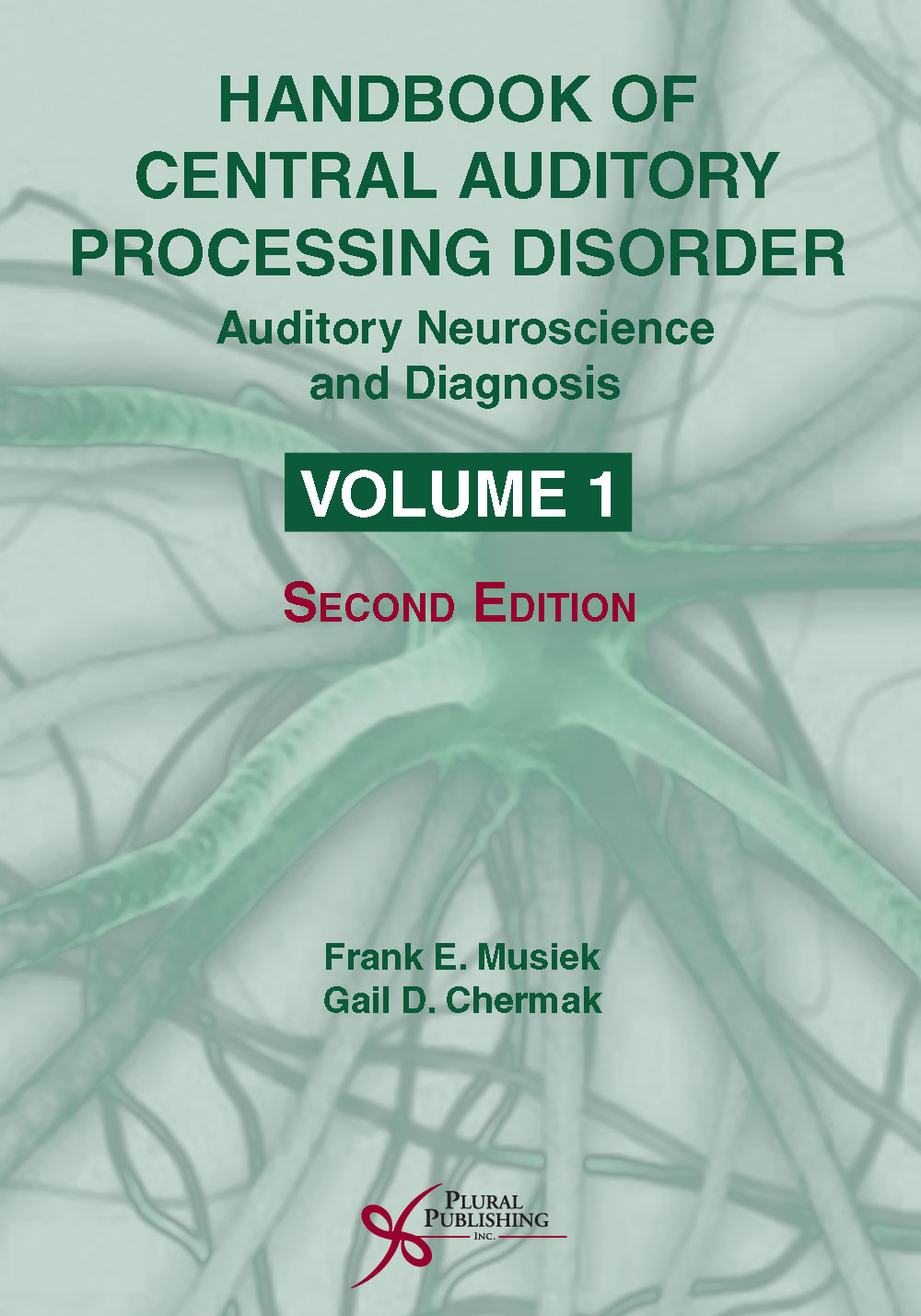
Handbook of Central Auditory Processing Disorder, Volume I: Auditory Neuroscience and Diagnosis
Second Edition
Frank E. Musiek, Gail D. Chermak
Details: 768 pages, B&W, Hardcover, 7" x 10"
ISBN13: 978-1-59756-561-5
© 2014 | Available
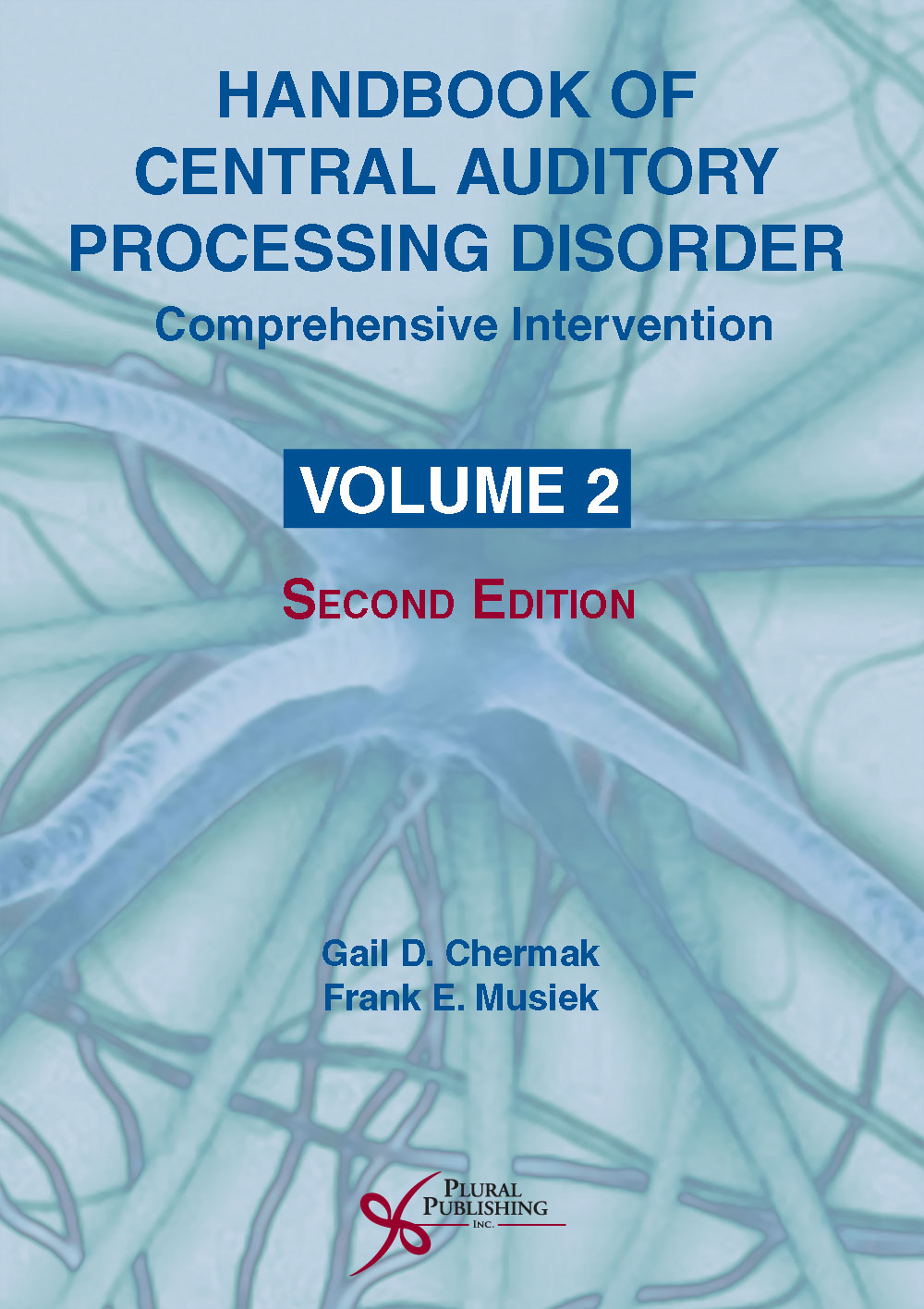
Handbook of Central Auditory Processing Disorder, Volume II: Comprehensive Intervention
Second Edition
Gail D. Chermak, Frank E. Musiek
Details: 792 pages, B&W, Hardcover, 7" x 10"
ISBN13: 978-1-59756-562-2
© 2014 | Available
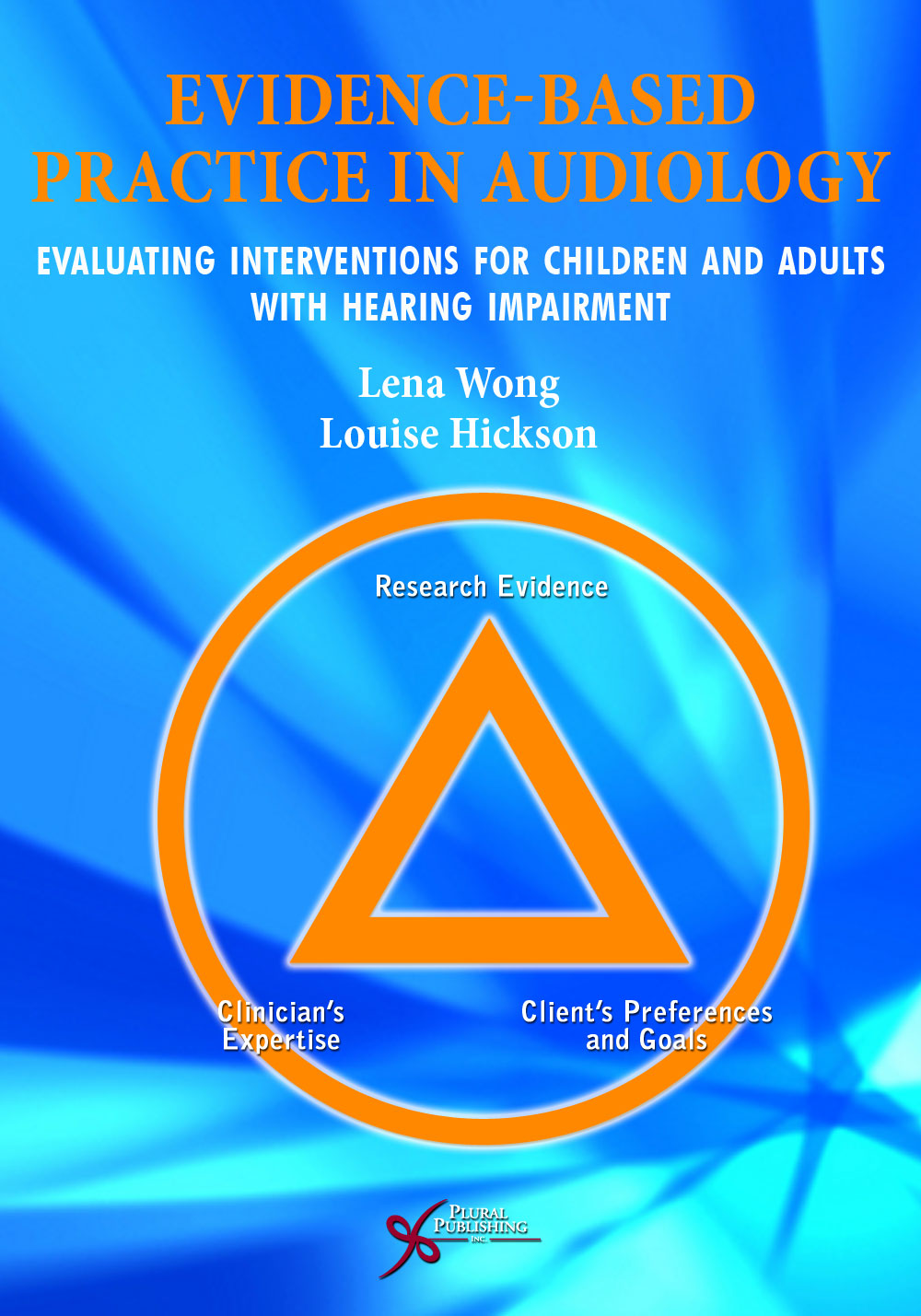
Evidence-Based Practice in Audiology: Evaluating Interventions for Children and Adults with Hearing Impairment
First Edition
Lena Wong, Louise Hickson
Details: 356 pages, B&W, Softcover, 7" x 10"
ISBN13: 978-1-59756-419-9
© 2012 | Available
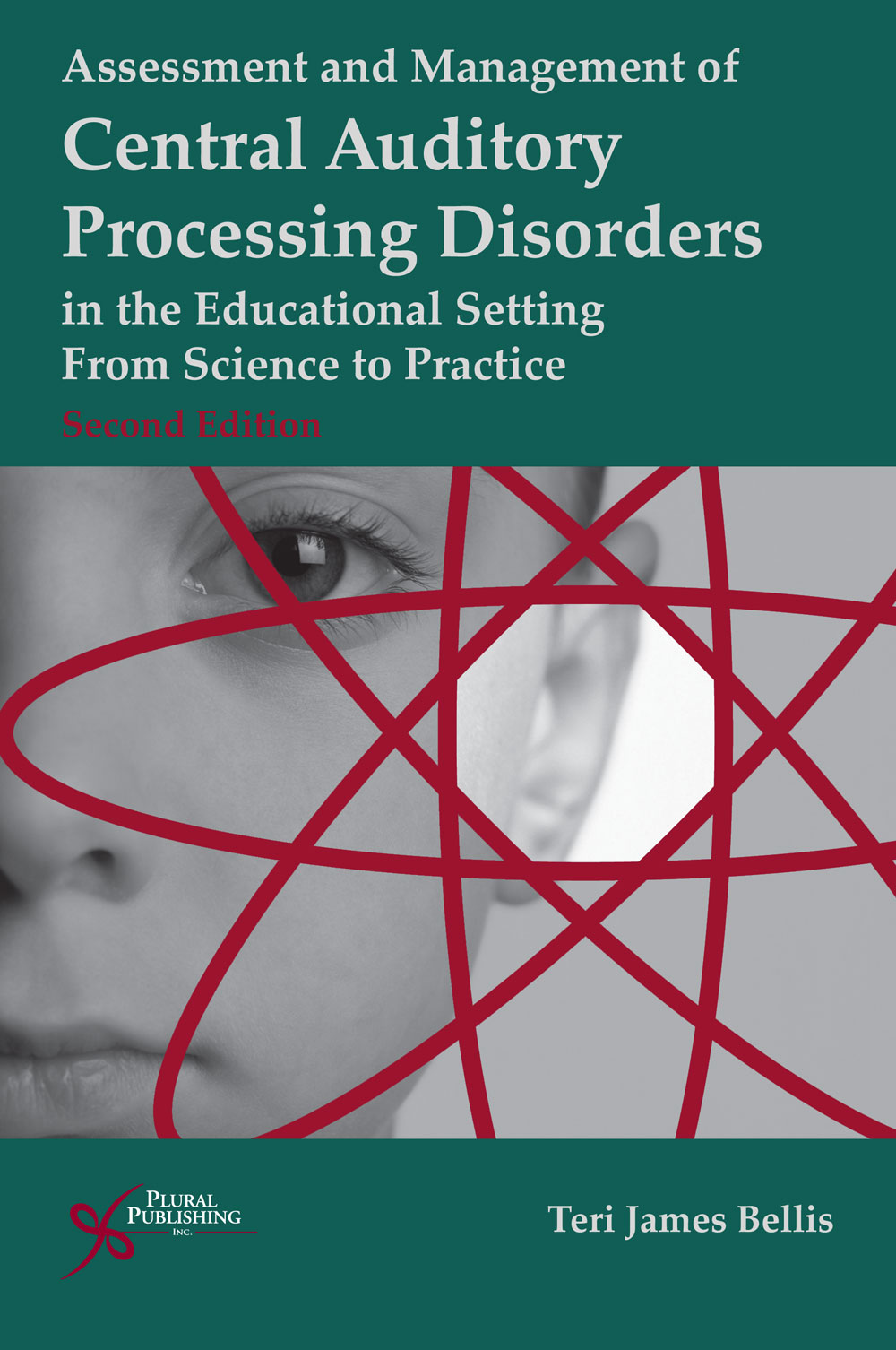
Assessment and Management of Central Auditory Processing Disorders in the Educational Setting: From Science to Practice
Second Edition
Teri James Bellis
Details: 532 pages, B&W, Softcover, 7" x 10"
ISBN13: 978-1-59756-451-9
© 2011 | Available
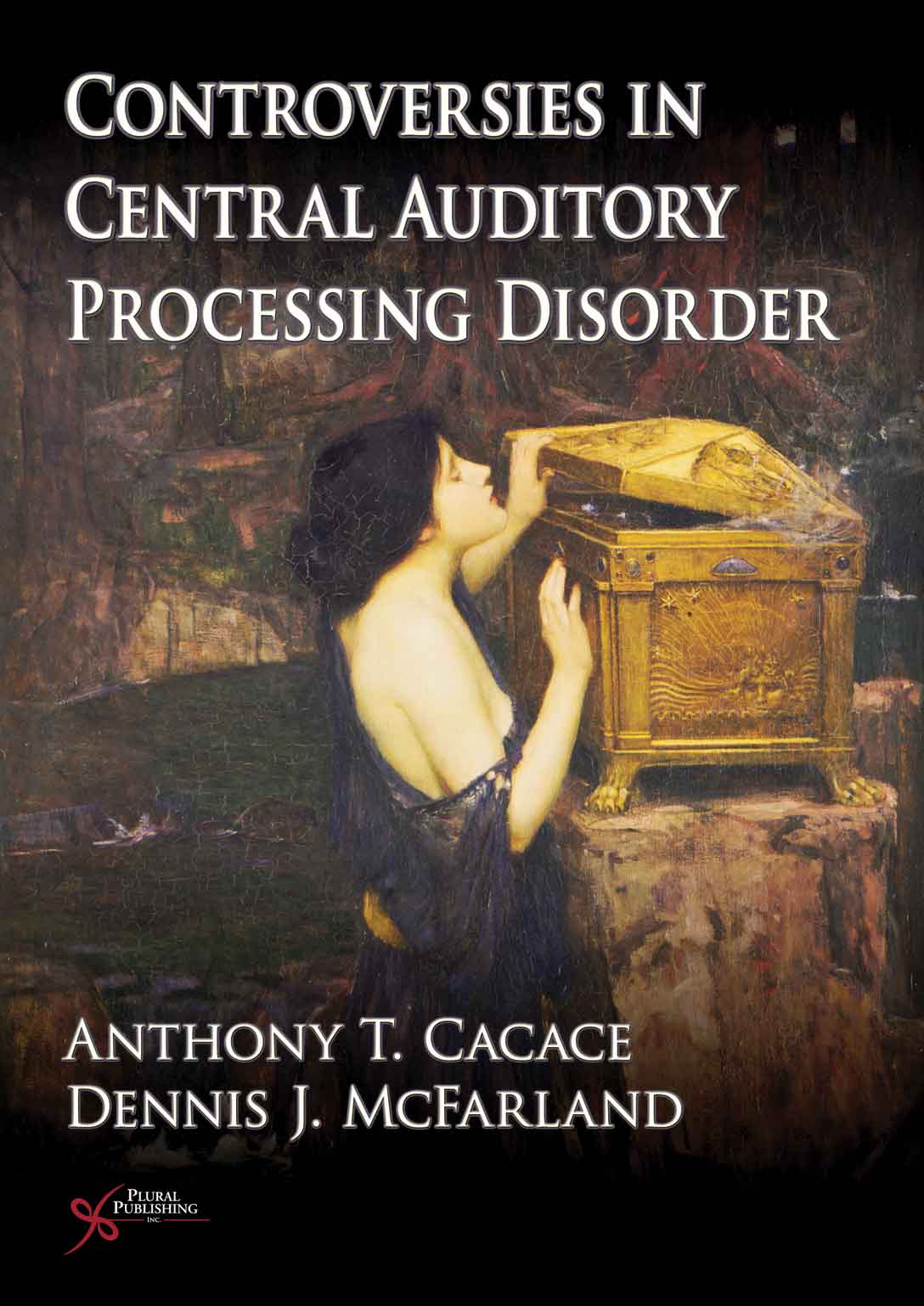
Controversies in Central Auditory Processing Disorder
First Edition
Anthony T. Cacace, Dennis J. McFarland
Details: 550 pages, B&W, Hardcover, 7" x 10"
ISBN13: 978-1-59756-260-7
© 2009 | Available


